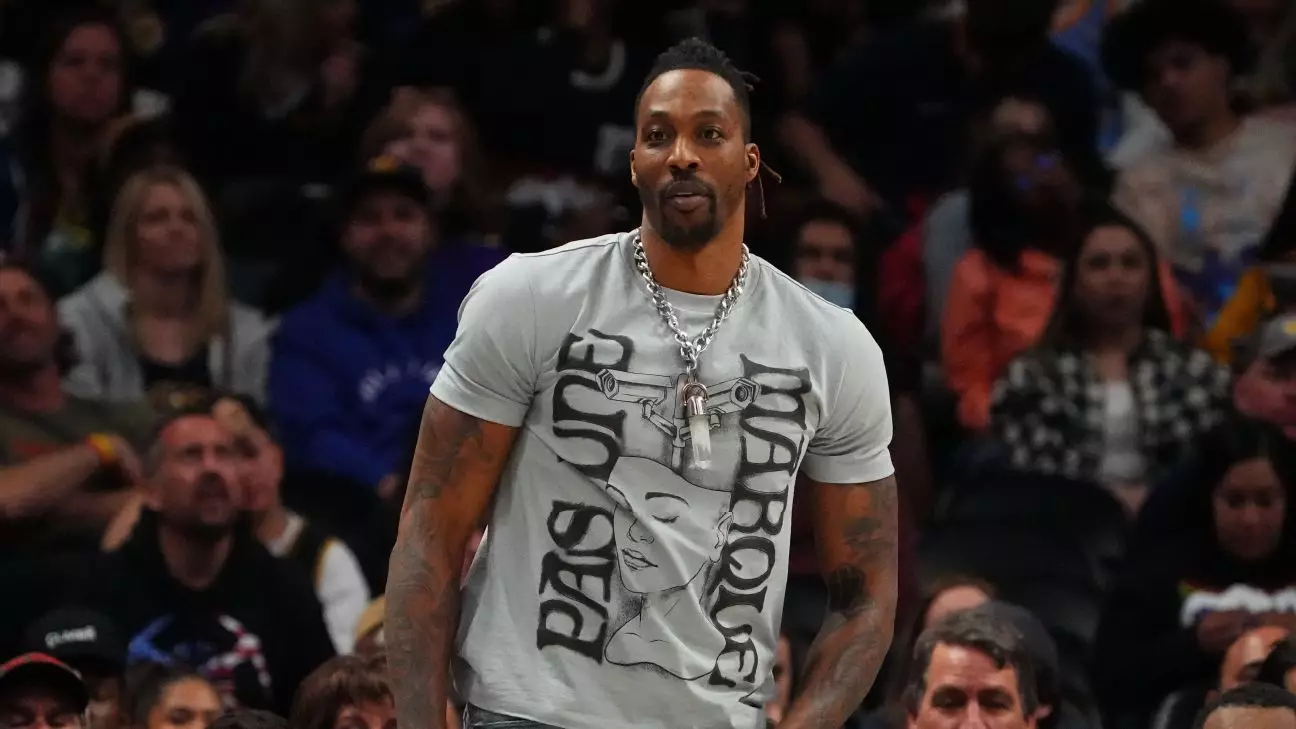In a striking case that has captivated both the sports and financial communities, Calvin Darden Jr., a businessman from Georgia, faced justice recently with a federal conviction in Manhattan. Convicted on five counts, including fraud and money laundering, this incident serves as a sobering reminder of how high-profile athletes can fall victim to sophisticated scams. Darden’s fraudulent activities primarily targeted former NBA players Dwight Howard and Chandler Parsons, leading to a staggering loss of $8 million in 2021, proof that financial literacy remains a crucial aspect for even the most financially affluent individuals.
Darden’s deceitful practices included complex financial schemes that lured in prominent figures like Howard and Parsons. In Howard’s case, he was misled into believing he was investing in the WNBA team Atlanta Dream, leading to a $7 million payment. Parsons, on the other hand, found himself entangled in a bogus investment centered around the career development of former NBA draft pick James Wiseman. This highlights an alarming trend in sports where the lack of diligence and understanding in financial matters can lead athletes to jeopardize their wealth and career-long earnings.
The criminal activities did not happen in isolation; Darden collaborated with Charles Briscoe, a former NBA agent who has since admitted his wrongdoing. Briscoe’s plea underscores a troubling network of complicity that enables such fraudulent operations. This case not only sheds light on Darden’s actions but also reveals a systemic vulnerability in which agents and financial advisers exploit the trust of their clients.
The court proceedings took place over two weeks and concluded with a jury’s decision within five hours, which speaks volumes about the compelling evidence against Darden. Testimony from Howard was critical; he detailed how Darden had misappropriated funds—using $6.1 million on luxuries such as a Lamborghini, expensive watches, and even a grand piano. The audacity of such expenditures paints a picture of hubris and greed, demonstrating how far Darden strayed from ethical business practices.
Moreover, prosecutors plan to request a substantial sentence of 11 to 14 years for Darden, a decision grounded in the severity of his actions and prior convictions, including a multimillion-dollar fraud scheme back in 2016. The legal ramifications of such financial crimes are far-reaching and should serve as a warning to others in the financial sector.
This conviction is part of a larger narrative of increasing scrutiny faced by athletes regarding their financial health. As the Southern District of New York continues its investigation into various financial fraud cases targeting sports personalities, the need for robust financial education acquires pressing urgency. Athletes, who often find themselves navigating unfamiliar terrains of wealth management, must be vigilant against potential threats that could harm their financial futures.
Going forward, it’s imperative that professional sports organizations implement education programs that equip athletes with the necessary tools to recognize fraudulent behavior and make informed financial decisions. The case of Darden serves as a cautionary tale that can ultimately lead to better protection for athletes and their financial legacies.


Leave a Reply